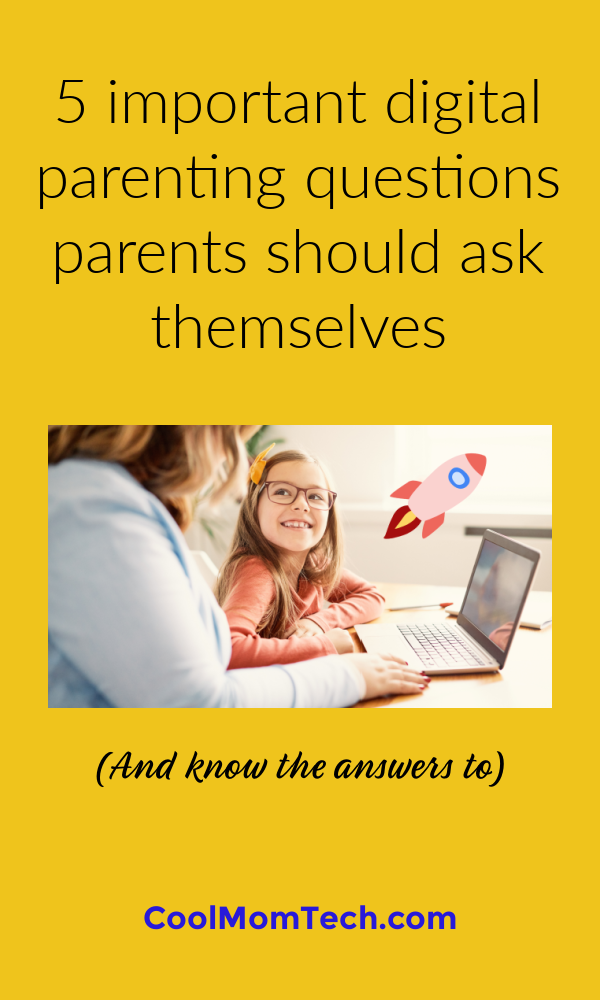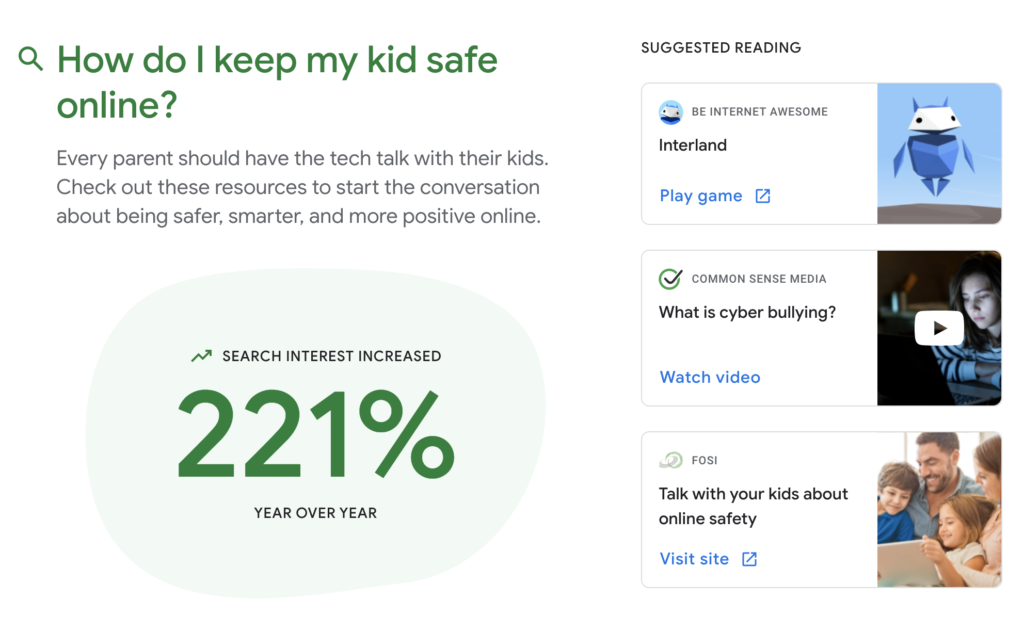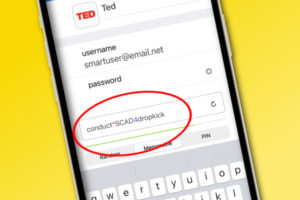We’ve always said that raising digital natives, especially since we’re not digital natives ourselves, means understanding the role of technology in our family. But when it comes to knowing what questions to ask (and answer), well, that can be the challenging part.
That’s why we’re so thrilled to be teaming up with our sponsor Google, who just launched a new resource to help make parenting in the digital age a whole lot easier. At families.google, you’ll find everything from what other parents are searching for when it comes to digital parenting, to content from trusted organizations like Common Sense Media, PBS Kids, Sesame Workshop, and more, not to mention a wealth of information on specific topics that are important for parents to address with their kids.
With that in mind, we’re sharing 5 important digital parenting questions parents should ask themselves, all of which you can find answers to, along with lots more helpful information, on families.google.

How can I keep my kids safe on the Internet? Safety is a huge concern for parents, and that’s no surprise. Kids can easily access all sorts of questionable content, as well as questionable people (or vice versa), with just a few clicks. From conversations about cyberbullying to understanding what kids could potentially be seeing or interacting with, it’s important for you to explore what safety looks like for your family, and continue to reevaluate that on a regular basis.
Do I know what apps and games my kids are playing? You may be surprised at the number of apps and games your kids are playing that you don’t know anything about. Our digital natives are quick to adopt new technology, whether it’s something that was recommended by a friend, or something they discovered on their own. It’s imperative that you know exactly what your kids are doing on the web, as well as what apps they’re using so you can not only have a better understanding of potential safety issues, but also stay connected with them in an emotional and mental sense.
What parental controls should I be using? Speaking of safety, one way parents can help manage their kids’ online and device usage is through parental controls. But knowing whats available to you and which are right for your family can be a bit overwhelming. Once you have a sense of what apps and games your children are playing, as well as what sites they’re visiting, you will have a better idea of what controls you need to be using, and how many limits you need to be setting.
*****
A little more about our sponsor, Google

We’re always happy to find digital parenting resources that help make our job a little easier, which is why we’re excited to tell you about families.google. It’s a one-stop shop for all things digital parenting, with answers to all these questions and a whole lot more. From understanding how to set digital parenting rules to learning about the popular apps and games that kids are using, plus articles and videos on cyberbullying, online learning, screen life balance (you get the idea!), families.google offers the information that parents need, all in one handy place.
*****
How can I best use technology to support my child’s education? We’ve all had a crash course in the power of technology and education this past year, but as we see our kids go back to school, in some cases full-time, we’ll want to have an understanding of how we can support their transition back to school, as well as their classroom learning — on and offline — through tech.
What are some positive ways my family can connect through technology We’re often bogged down by the challenges that tech gives us that we forget it’s a wonderful way for us to connect with our kids and meet them where they are. Whether it’s watching a movie, playing an online game together, or discovering activities you can do together offline (just to name a few), keep a list of ways your family can bond through technology.
Explore the new families.google, a one-stop shop resource for families on all things tech to help provide digital parenting support. And thanks to them for making our job as digital parents a whole lot easier.






